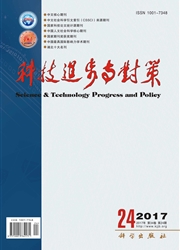

 中文摘要:
中文摘要:
知识流动是技术研发合作过程中的一种重要行为,对创新成果产出具有不可忽视的作用。从网络结构、合作关系以及节点属性3个维度对知识流动的影响及其交互作用展开分析,初步构建技术创新合作网络知识流动微观分析的基本框架。然后,以我国生物医药领域96个创新主体为主要研究对象,通过定性比较分析(QCA)方法深入剖析协同创新过程中知识流动的核心作用路径及典型微观作用路径。研究发现:①合作网络的知识流动受到节点属性、网络结构和关系程度三者交互作用的影响;②主体知识存量及密切合作是实现知识流动的重要保障;③目前在我国生物医药领域,高校、科研院所更倾向通过与不同类型的主体建立广泛的合作关系实现知识的有效流动,而企业则主要通过与少量主体建立密切合作关系实现知识有效流动。
 英文摘要:
英文摘要:
Knowledge flows is an important process of technology research cooperation and plays an important role in inno- vation output. This paper analyzes network structure, cooperative relations and node properties three factors~interactional influence of knowledge flows, preliminary building the basic framework of knowledge flow microscopic analysis in the tech- nology innovation cooperation network. Then,by using the QCA ,we dissect 96 innovation body's typical path and micro- scopic paths of knowledge flow in collaborative innovation process. It finds that: knowledge flows of technology innovation network have been interactional influenced by node properties, network structure and relationship degree; for knowledge flow, knowledge stocks and close cooperation of nodes are important guarantee; in the field of biological medicine, colleges and research institutes are more likely to establish extensive cooperation with different types of the node to promote the efficient flow of knowledge,while enterprises mainly through close cooperation with a small amount of nodes.
 同期刊论文项目
同期刊论文项目
 同项目期刊论文
同项目期刊论文
 期刊信息
期刊信息
